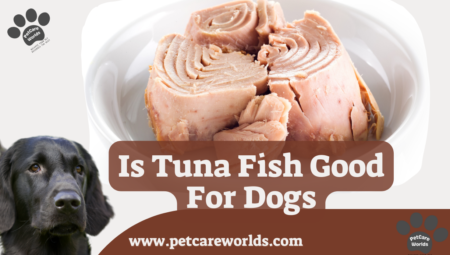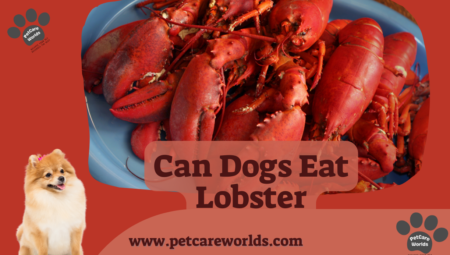Can dogs eat egg shells? This question might sound surprising to many dog owners, but egg shells are actually a potential nutrient powerhouse for your furry friend. Packed with calcium and other essential minerals, they can contribute to your dog’s health when given in the right amounts. But before you rush to offer your dog some egg shells, it’s important to know how to prepare them properly and whether they’re the right choice for your pup. Could this common kitchen waste be a hidden gem for your dog’s diet? Let’s dive deeper into the potential benefits and risks of feeding egg shells to dogs.
Can Dogs Eat Egg Shells?
Egg shells can be a healthy addition to your dog’s diet. They are rich in calcium, which helps maintain strong bones and teeth. However, it’s important to prepare them correctly before feeding them to your dog. When crushed into a fine powder, egg shells can be easier for your dog to digest. Feeding egg shells without preparation could cause harm to your dog’s digestive system. So, while egg shells are safe, proper preparation is key to unlocking their benefits. Can dogs eat egg shells
Benefits of Egg Shells for Dogs
Egg shells provide several health benefits for dogs. When crushed into powder, they can be added to your dog’s food. Here’s why they’re helpful:
- Calcium for stronger bones and teeth
- Improved joint health
- Support for healthy skin and coat
- Better muscle function
These benefits can contribute to overall well-being, especially for older dogs or those with bone-related issues. Can dogs eat egg shells
How Calcium Helps Dogs’ Health
Calcium is essential for dogs. It plays a vital role in:
- Building and maintaining strong bones and teeth
- Supporting nerve function
- Ensuring muscle health and contraction
- Regulating blood clotting
A deficiency in calcium can lead to bone disorders or muscle weakness. Egg shells can be a natural way to supplement calcium. Can dogs eat egg shells
Egg Shell Composition: What’s Inside?
Egg shells are made up of more than just calcium. Their composition includes:
- Calcium carbonate (the main component)
- Collagen for joint health
- Magnesium, phosphorus, and potassium for overall health
- Trace elements that support various bodily functions
These elements combine to make egg shells a nutritious addition to your dog’s diet when prepared properly.
The Importance of Calcium in a Dog’s Diet
Calcium is crucial for a dog’s overall health. It helps with:
- Bone strength and structure
- Muscle contraction and function
- Nerve transmission
- Blood clotting
Including enough calcium in your dog’s diet is vital for their growth and maintenance. Without it, dogs may face various health issues. Can dogs eat egg shells
Calcium Deficiency in Dogs
A calcium deficiency can cause several health problems for dogs, including:
- Weak bones and fractures
- Muscle spasms or tremors
- Lethargy and fatigue
- Dental issues
If your dog shows any of these signs, a calcium deficiency may be the cause.
How Calcium Supports Bone Development
Calcium is key to the growth and strength of a dog’s bones. It helps in:
- Bone mineralization during growth stages
- Maintaining bone density in adult dogs
- Repairing bone tissue after injury
Adequate calcium intake ensures that a dog’s bones develop properly, especially during their puppy years. Can dogs eat egg shells
Calcium in Adult Dogs
In adult dogs, calcium plays a major role in:
- Maintaining bone health
- Supporting muscle function
- Preventing bone loss as they age
For adult dogs, calcium levels should be carefully balanced to avoid excessive calcium intake, which can also cause issues like kidney stones. Can dogs eat egg shells

How to Safely Prepare and Serve Egg Shells to Dogs
To serve egg shells to your dog safely, follow these simple steps:
- Clean the shells thoroughly to remove any contaminants.
- Grind the shells into a fine powder for easier digestion.
- Add the powder to your dog’s food in small amounts to start.
Ensure that the egg shells are free of bacteria and properly prepared to avoid any health risks.
Cleaning and Preparing Egg Shells
Before serving egg shells to your dog, make sure to:
- Rinse the shells well to remove any leftover egg or debris.
- Boil the shells for a few minutes to kill any harmful bacteria.
- Dry the shells completely before grinding them.
This ensures the shells are safe and clean for your dog. Can dogs eat egg shells
Grinding Egg Shells to a Fine Powder
Grinding egg shells is important for easier digestion. To do this:
- Use a blender or coffee grinder to achieve a fine powder.
- Make sure the powder is smooth and free from sharp edges.
- Store the powder in an airtight container to keep it fresh.
This process makes the calcium in the shells easier for your dog’s system to absorb. Can dogs eat egg shells
Proper Dosage for Your Dog
The proper amount of egg shell powder depends on your dog’s size and needs. A general guideline is:
- Small dogs: 1/4 teaspoon per day
- Medium dogs: 1/2 teaspoon per day
- Large dogs: 1 teaspoon per day
Start with a small amount and monitor your dog for any adverse reactions. Adjust the dosage as needed. Consult your vet if you’re unsure about the right amount.
Potential Risks and Considerations
While egg shells provide beneficial calcium, there are some risks to consider:
- Too much calcium can lead to health problems.
- Some dogs may struggle with digestion of egg shell particles.
- Egg shells could also pose a choking hazard if not properly prepared.
It’s important to be cautious and informed before adding them to your dog’s diet. Can dogs eat egg shells
Too Much Calcium: A Concern?
Calcium is essential, but too much can cause problems, such as:
- Kidney damage
- Digestive issues
- Bone problems in puppies
Always ensure you’re giving the right amount for your dog’s size and age. Can dogs eat egg shells
Consult a Veterinarian
Before introducing egg shells into your dog’s diet, it’s always wise to:
- Talk to your vet for personalized advice.
- Ask about the appropriate dosage based on your dog’s health.
- Discuss any underlying conditions your dog may have.
A veterinarian can help you avoid potential risks and ensure your dog’s health. Can dogs eat egg shells

Can Dogs Eat Egg Shells?
| Aspect | Details |
|---|---|
| Calcium Content | Egg shells are rich in calcium, supporting strong bones and teeth. |
| Health Benefits | Can help improve joint health and prevent arthritis in older dogs. |
| Preparation Needed | Egg shells should be cleaned and ground to a fine powder. |
| Risks | Too much calcium can cause kidney problems or digestive issues. |
| Consult a Veterinarian | Always consult your vet before adding egg shells to your dog’s diet. |
“Egg shells can be a valuable source of calcium for dogs, but proper preparation and moderation are essential for safety.”
Can Dogs Eat Egg Shells? – FAQs
1. Can dogs eat egg shells raw?
It’s not recommended to feed your dog raw egg shells directly. Egg shells should be properly cleaned and ground into a fine powder before serving to your dog to avoid any choking hazards.
2. Are egg shells safe for puppies?
While egg shells are a good source of calcium, they should not be given to puppies without consulting a veterinarian first. Puppies have different dietary needs, and too much calcium can cause bone development issues.
3. How much egg shell should I give my dog?
The right amount varies depending on your dog’s size and nutritional needs. Generally, a small pinch of ground egg shell powder mixed with food is enough. It’s crucial to avoid overfeeding.
4. Can egg shells help with arthritis in dogs?
Yes, egg shells can contribute to joint health due to their high calcium content. The calcium in egg shells may support cartilage and bone strength, potentially helping dogs with arthritis or joint problems.
5. Can egg shells cause digestive issues in dogs?
Feeding too much egg shell can lead to digestive issues, such as constipation or upset stomach. It’s important to stick to the recommended amount and monitor your dog for any adverse reactions.
6. Should I consult a vet before feeding egg shells to my dog?
Yes, it’s always best to check with a veterinarian before introducing egg shells into your dog’s diet, especially if your dog has pre-existing health conditions or dietary restrictions.
Conclusion
Can dogs eat egg shells? Yes, when properly prepared, egg shells provide valuable calcium. Always consult your vet and feed in moderation to avoid risks.





